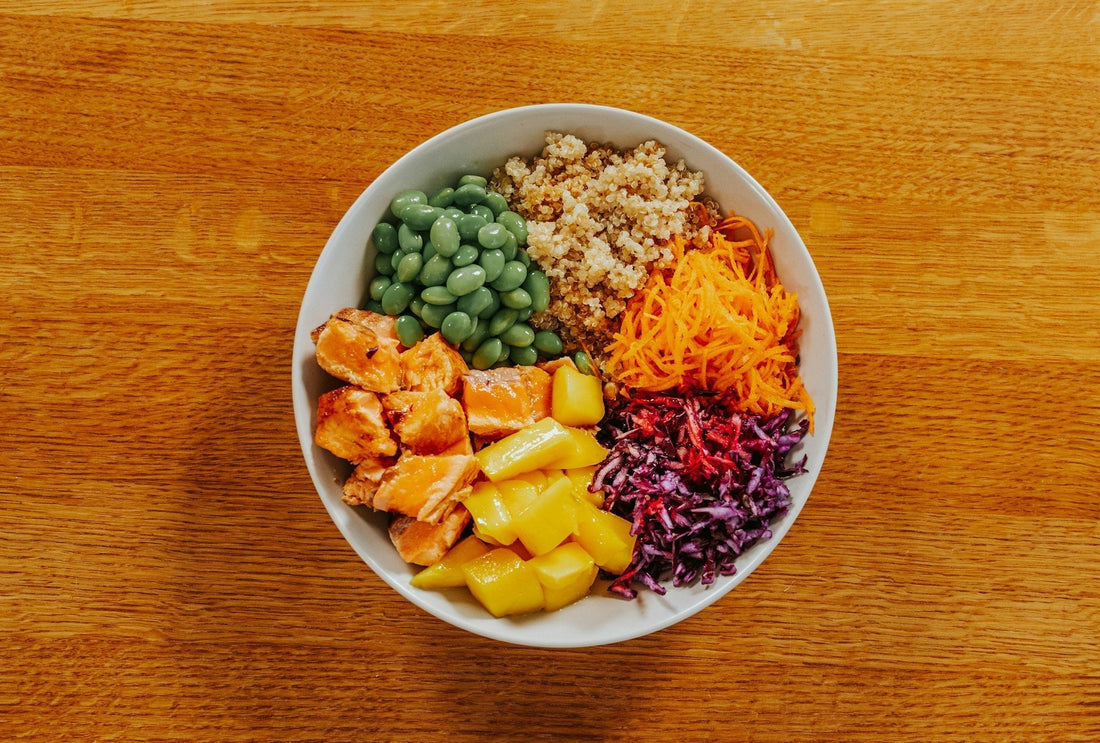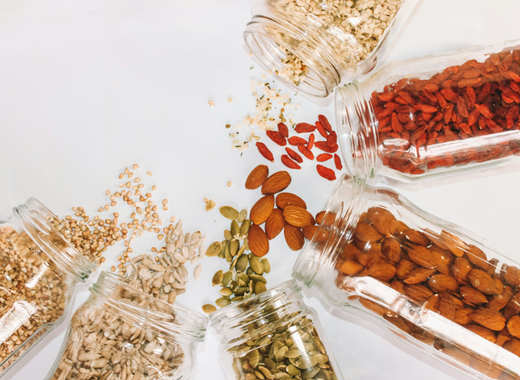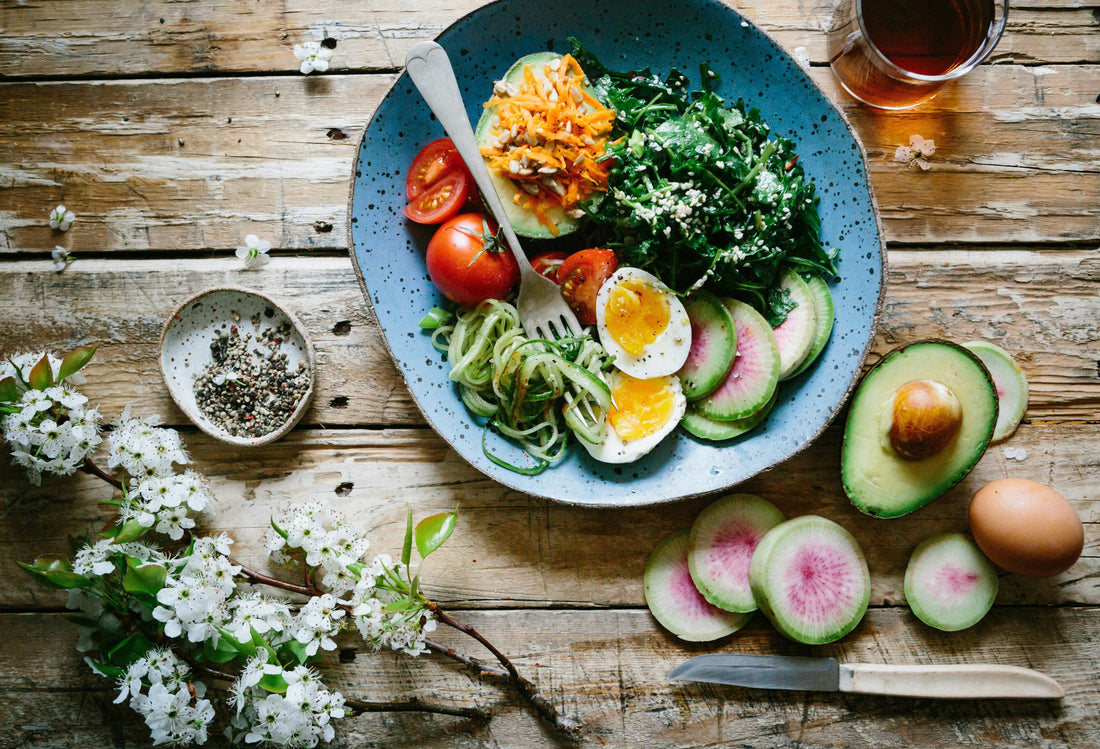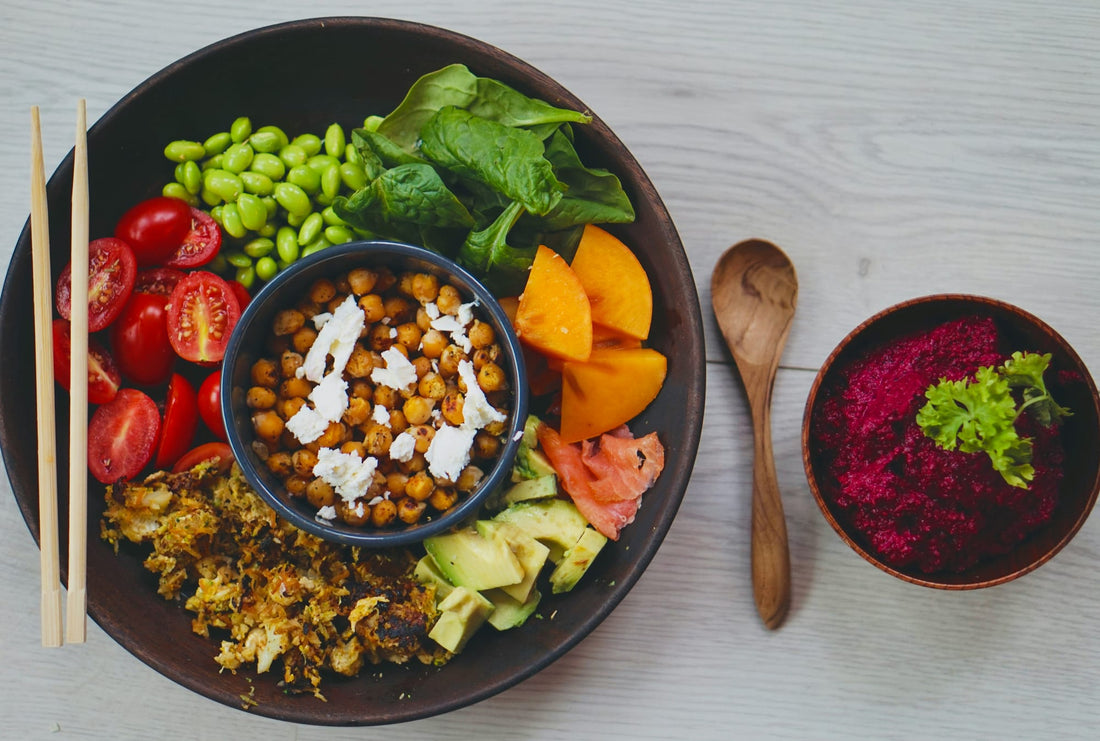Wellness Blog
The content on this blog is for general informational purposes only and is not a substitute for professional medical advice, diagnosis, or treatment. Always consult your healthcare provider before making changes to your health routine or taking new supplements.
5 Zinc Benefits and Why You Need It in Your Diet
Zinc is vital for numerous processes in the body. While it often doesn't receive the same spotlight as other nutrients, zinc plays a critical role in keeping us healthy. What is Zinc and Why is it Essential? Zinc is an essential trace mineral, meaning your body cannot produce or store it, so you must obtain it through diet or supplements. It contributes to over 300 enzymatic processes, making it critical for maintaining overall health. From supporting immunity to promoting healthy skin and hair, zinc is a multitasker that your body can't do without. Here are five clinically supported benefits of zinc and why you should ensure this mineral is part of your diet. 1. Supports Immune Function Zinc is essential for a strong immune system. It activates white blood cells like T-cells, which help fight off infections. Clinical studies show that zinc supplementation can reduce the duration of colds by boosting the body's natural defense mechanisms. How it works: Zinc prevents viruses from replicating and strengthens the integrity of mucous membranes, your first line of defense against pathogens. Best for: People prone to frequent colds or infections. 2. Aids in Wound Healing Zinc plays a vital role in healing, whether it's for minor scrapes or more serious injuries. It aids in tissue growth and repair while its anti-inflammatory properties help minimize swelling around wounds. A deficiency in zinc has been associated with slower wound healing. How it works: Zinc supports cell growth and controls inflammation, both of which are essential for the healing process. 3. Promote Skin and Hair Health Zinc is a beauty hero when it comes to your skin and hair. It helps regulate sebum production, which can prevent clogged pores and acne. Additionally, it supports the production of collagen. Hair health: Zinc supports hair follicles by reducing oxidative stress and regulating hormones, both of which are vital for hair growth and reducing hair thinning. Skin conditions: Studies have shown that zinc supplementation can significantly reduce acne and inflammatory skin conditions. 4. Support Reproductive Health Zinc plays a vital role in hormonal balance, making it essential for reproductive health in both men and women. For women: Zinc helps regulate hormones, maintain a healthy menstrual cycle, and support egg quality. For men: Zinc boosts testosterone levels and supports sperm production. It also acts as an antioxidant, protecting sperm from damage caused by oxidative stress. 5. Supports General Wellbeing and Reduces Free Radicals Zinc acts as a powerful antioxidant, helping to neutralise free radicals formed in the body. This reduces oxidative stress, which can harm cells and contribute to aging and chronic diseases. Zinc also supports overall health and wellbeing, ensuring the body has the resources it needs to perform optimally. How it Works: Zinc's antioxidant properties help protect cells from damage and support healthy metabolic processes throughout the body. Additional Benefits of Zinc While these five benefits are among the most well-documented, zinc has many other health benefits: Improves digestion: Zinc supports enzyme production, aiding in the breakdown of food and absorption of nutrients. Supports eye health: Zinc is critical for maintaining good vision, particularly in low light. Reduces inflammation: Zinc's antioxidant properties help neutralise free radicals and reduce inflammation throughout the body. Signs of Zinc Deficiency Zinc deficiency is more common than you might think, especially among vegetarians, vegans, and individuals with digestive disorders like Crohn's disease. Symptoms of deficiency include: Frequent infections Slow wound healing Hair thinning or loss Dry or flaky skin Poor sense of taste or smell If you notice any of these symptoms, consider speaking to a healthcare professional for advice. How to Get Enough Zinc in Your Diet Zinc is found in a variety of foods, making it relatively easy to incorporate into your diet: Animal-based sources: Oysters (the richest source), beef, lamb, chicken, and eggs. Plant-based sources: Pumpkin seeds, chickpeas, lentils, cashews, and quinoa. Fortified foods: Breakfast cereals and plant-based milk often include added zinc. For vegetarians or vegans, it's important to note that plant-based zinc is less bioavailable, so you may need to consume higher amounts or consider supplementation. How to Choose the Right Zinc Supplement If you're not meeting your zinc requirements through diet alone, supplementation can help. Look for bioavailable forms like zinc glycinate which are easier for your body to absorb and less likely to cause stomach upset. Always take your zinc supplement with a meal. Dosage: The recommended daily intake for adults is 8 mg for women and 14 mg for men, though higher doses may be prescribed for specific deficiencies. Final Thoughts Zinc is a small but mighty mineral with far-reaching benefits for your body and mind. From boosting immunity to promoting healthy skin, and hair, zinc deserves a top spot in your diet. Whether you're enjoying zinc-rich foods or considering a high-quality supplement, investing in this essential nutrient is highly regarded for your overall health. *Always read the label. Follow the directions for use. If symptoms persist, talk to your health professional. Vitamin and/or mineral supplements should not replace a balanced diet. References https://ods.od.nih.gov/factsheets/Zinc-HealthProfessional/ Almohanna, HM., Ahmed, AA., Tsatalis, JP. Tosti, A. 2019. “The Role of Vitamins and Minerals in Hair Loss: A Review”. Dermatology and Therapy, 9. 1 (Mar): 51-70. https://www.ncbi.nlm.nih.gov/pmc/articles/PMC6380979/# Shankar, A. H., & Prasad, A. S. (1998). Zinc and immune function: the biological basis of altered resistance to infection. The American journal of clinical nutrition, 68(2 Suppl), 447S–463S. https://doi.org/10.1093/ajcn/68.2.447S Garner TB, Hester JM, Carothers A, Diaz FJ. Role of zinc in female reproduction. Biol Reprod. 2021;104(5):976-994. doi:10.1093/biolre/ioab023 Fallah A, Mohammad-Hasani A, Colagar AH. Zinc is an Essential Element for Male Fertility: A Review of Zn Roles in Men's Health, Germination, Sperm Quality, and Fertilization. J Reprod Infertil. 2018;19(2):69-81. PMCID: PMC6010824 PMID: 30009140 Zinc: Nutrient Reference Values for Australia and New Zealand.Eat for Health, National Health and Medical Research Council, n.d., https://www.eatforhealth.gov.au/nutrient-reference-values/nutrients/zinc. Accessed 22 Jan. 2025. Lin PH, Sermersheim M, Li H, Lee PHU, Steinberg SM, Ma J. Zinc in Wound Healing Modulation. Nutrients. 2017 Dec 24;10(1):16. doi: 10.3390/nu10010016. PMID: 29295546; PMCID: PMC5793244.
Learn moreHow Zinc Supports Hair Health?
Discover how zinc plays a vital role in maintaining strong, vibrant hair. Learn about zinc-rich foods, deficiency signs, and its connection to hair health and loss.
Learn moreFeeling Tired and Losing Hair? Here’s Why These Symptoms Might Be Connected
If you've been feeling low on energy and noticing more hair shedding than usual, you're not alone.
Learn moreFive Health Benefits of Zinc
What are the benefits of zinc and how does it help support our skin and overall health? Here's everything you need to know.
Learn moreHow to support your immune system year-round
Supplements to keep your immune system strong all year round
Learn moreThe surprising benefits of zinc for skin
Zinc is a mineral that can help keep the skin healthy. It is one of 16 essential minerals in our body and is involved in more than 300 enzyme reactions to help our cells function.Seeing as our bodies do not produce zinc naturally, it is important to understand its sources and benefits.Zinc skin benefitsZinc is considered an essential nutrient that helps maintain and support the formation and health of collagen, a major component of our skin. It helps in healing minor body tissue injuries and wound healing, as well as supports skin repair, healing, or regeneration.Here are the top benefits of zinc for skin:Improves wrinkles and fine linesAs we age, our skin loses elasticity and begins to sag. Natural oils and fat deposits in the inner skin layers decrease, causing wrinkles and fine lines to form.One of the most popular zinc skin benefits is based on its anti-ageing properties. Studies (1) show that eight weeks of topical zinc therapy resulted in elastic fibre regeneration in the top layer of the skin. This resulted in a marked improvement in wrinkles and fine lines. This is because zinc has photoprotective properties, which means it can help reduce skin damage caused by sunlight and ultraviolet (UV) rays.Speeds up wound healingOther zinc skin benefits include skin repair and healing after an injury. If you are not consuming enough zinc from your diet, you could present with cracked skin (2).Doctors may prescribe zinc supplements for those with wounds that develop between the knee and ankle. According to healthdirect.gov.au, around 1% of Australians suffer from this (3). Since these wounds are located far from the heart, they may take a longer time to heal as it is difficult for veins in the legs to carry deoxygenated blood back to the heart. There is evidence suggesting that these wounds may heal faster with the help of mineral and vitamin supplements, including zinc (3).Helps with skin repairIf you have keloids, or noticeable scars from an injury or surgery, you may want to look into topical zinc-based options to complement other treatment modalities for better skin health.It is believed that topical zinc can stimulate collagenase. Collagenase is an enzyme that breaks down collagen in damaged tissue and supports tissue growth (1). It can support skin repair and regeneration, demonstrating the many benefits of zinc for various underlying skin conditions. Zinc for skin: Where can I get zinc?Fortunately, several foods contain zinc. Oysters are a good source of this trace mineral, containing more zinc per serving than any other food (5). Red meat, fish, poultry, and even cereals and dairy are rich in zinc (5). There are also several forms of zinc supplements to choose from, including zinc gluconate, zinc acetate, and zinc sulphate.How much zinc do I need for good skin health?It is recommended that male and female adults consume 14mg and 8mg of zinc per day (6).Zinc intake for vegetariansIt can be difficult for vegetarians to meet the recommended daily zinc intake from food alone. It is estimated that vegetarians require approximately 50% more of the recommended daily zinc intake than non-vegetarians (6). This is because the amount of zinc absorbed by the body is affected by the amount of protein in our diet. In the case of vegetarians, usual protein sources like grains and beans contain phytates, a compound that blocks zinc absorption.Zinc intake for those with pre-existing conditionsThose with pre-existing conditions can be more vulnerable to zinc deficiency (4). These health conditions also can decrease the amount of zinc absorbed by the body and increase the amount that passes through the kidneys (4).What happens if I do not get enough zinc?While zinc can be found naturally in several foods, it is not uncommon for people to suffer from zinc deficiency.Zinc deficiency results in visible skin changes, demonstrating the importance of zinc for skin. Rashes and cracks can appear on the skin around the mouth and hands, resisting moisturisers, steroid creams (anti-inflammatory cream), and lotions.If you are in any of the aforementioned at-risk groups, or believe that you may not be getting enough zinc from dietary intake, it may be worth considering supplements. Zinc supplements can plug gaps in your diet, maximise the effects of positive lifestyle choices, and provide targeted support.You know what else goes well with a healthy lifestyle? Supplements and vitamins. You're in luck as you can build your own vitamin pack with Vitable to get the most out of that exercise regime and healthy diet! Once you've put together the best combination of supplements tailor made for you, we'll have these custom vitamin packs delivered right to you. And that's how you construct custom vitamins in Australia. Learn more about other areas that zinc can help you with, plus other supplements that can benefit in different ways:Zinc | Iron | Astaxanthin | B complex | Vitamin C | Cranberry | Collagen | Biotin*Always read the label. Follow the directions for use. If symptoms persist, talk to your health professional. Vitamin and/or mineral supplements should not replace a balanced diet.References:1. National Institutes of Health. (2014). Zinc Therapy in Dermatology: A Review. https://www.ncbi.nlm.nih.gov/pmc/articles/PMC4120804/ Accessed August 01, 20212. Healthdirect. Zinc and your health. https://www.healthdirect.gov.au/zinc Accessed August 01, 20213. Better Health. Leg ulcers. https://www.betterhealth.vic.gov.au/health/ConditionsAndTreatments/leg-ulcers Accessed August 01, 20214. Healthdirect. Zinc Deficiency. https://www.healthdirect.gov.au/zinc-deficiency Accessed August 01, 20215. National Institutes of Health Office of Dietary Supplements. Zinc. https://ods.od.nih.gov/factsheets/Zinc-HealthProfessional/ Accessed August 01, 20216. Nutrient Reference Values. Zinc. https://www.nrv.gov.au/nutrients/zinc Accessed August 01, 2021
Learn moreZinc Supplements for Hair Strength
Our hair can play an important part in our lives as it protects the scalp from harmful sun exposure and heat. Some common factors that may cause it to change over time are hormonal changes, overexposure to the sun's ultraviolet (UV) rays, chemical processes (ie. dye), and aging (1).
Learn moreWhat are trace minerals like Iodine and Zinc, and why are they important?
Learn about the benefits, types, and food sources of trace minerals like iron, zinc, iodine and selenium. Discover how to meet your needs for optimal health and well-being.
Learn more











